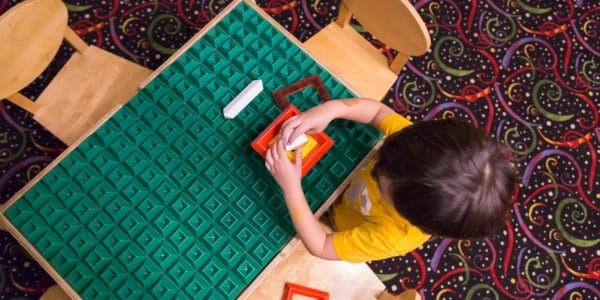
19/03/21
3 min read
There are “deeply concerning” inconsistencies in how children with special educational needs and disabilities (SEND) in England are identified and supported.
The new Nuffield-funded study from the Education Policy Institute (EPI) shows that access to SEND support is decided by a ‘postcode lottery’. The chances of receiving SEND support from the school or from the local authority are largely dictated by the school that a child attends, rather than their individual circumstances.
Over a million children are currently registered as having special educational needs in England – with as many 4 in 10 of all pupils recorded as having SEND at some point during their time at school.
Parents of children with more complex needs have long claimed that the support offered by authorities is insufficient and differs markedly from place to place. Now, for the first time, data analysis from EPI provides evidence at a national level to support claims of disjointed and unequal support for SEND.
The longitudinal research, which tracks hundreds of thousands of pupils from a single year group through primary school, reveals that the huge variation in SEND support for children can be explained by inconsistent approaches to identifying children.
The findings show that pupils attending academy schools are far less likely to be identified with SEND compared to other similar pupils, indicating that pupils’ needs may have been overlooked in these settings.
Children living in the most disadvantaged areas of the country are less likely to be formally recognised as having SEND than similar pupils in more affluent areas, highlighting how there is a “rationing of support” in many areas of high need.
The report also shows that many vulnerable pupils are more likely to be subject to SEND “under-identification”. Those moving schools and those frequently out of school, along with children who have suffered abuse or neglect, are all shown to have a reduced chance of being identified with SEND compared with otherwise similar children.
With the system for supporting SEND highly reliant on regular access to pupils over time researchers conclude that the pandemic will likely have aggravated existing problems seen in SEND identification, with increasing numbers of more vulnerable children who need support falling under the radar of schools and authorities.
Policy recommendations
The system for identifying and supporting pupils with SEND requires a number of careful reforms to improve consistency, accessibility, accountability and resource allocation, including:
- Improvements in assessing SEND within schools.
- Increased specialist training and support for teachers and school leaders.
- A national framework setting out minimum standards of support for children with SEND in mainstream schools.
- A greater focus in primary schools on the role of children’s personal, social and emotional development.
- Concerted efforts from authorities to reaching highly vulnerable children who require specialised learning support, who are be less visible in the system.
- A SEND funding system that is far more responsive to pupils’ needs.
Jo Hutchinson, Director of Social Mobility and Vulnerable Learning at the Education Policy Institute (EPI), said:
“For many years families have highlighted flaws and inconsistencies in the system of identifying children with special educational needs. Now, for the first time, through analysis of national data, we have provided evidence to show that there is a lottery for support.
“We find that the level of support for children with SEND is highly variable across the country and is very much dependent on which school a child goes to, rather than actual need.
“While access to SEND support was already very unequal, the pandemic is very likely to have resulted in more children falling through the cracks or facing long waits for support. We need to significantly improve how we identify pupils with special educational needs and disabilities, so that we can deliver consistently for families and ensure that no child is denied the support that they need.”
David Laws, Executive Chairman of the Education Policy Institute (EPI) said:
“This report exposes the erratic and unequal way in which support for pupils with special educational needs is provided.
“It is especially concerning that many of the most disadvantaged children with unstable home lives are less likely to access support for more complex learning needs. With the pandemic acting as a further barrier to assessing children’s needs, the government must drastically improve its efforts to ensure that it is reaching the most vulnerable children in society.”






































